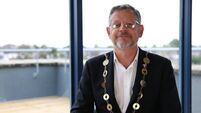Call for new disability rights watchdog

The Centre for Disability Law and Policy at NUI Galway says a committee of 12 should be jointly appointed with the Irish Human Rights and Equality Commission as the new watchdog with powers to scrutinise government policies and service provision, and intervene where they are failing individuals.
Its recommendation is made today as Ireland comes under pressure to implement the United Nations Convention of the Rights of People with Disabilities, which the country signed in 2007 but has not yet ratified.













